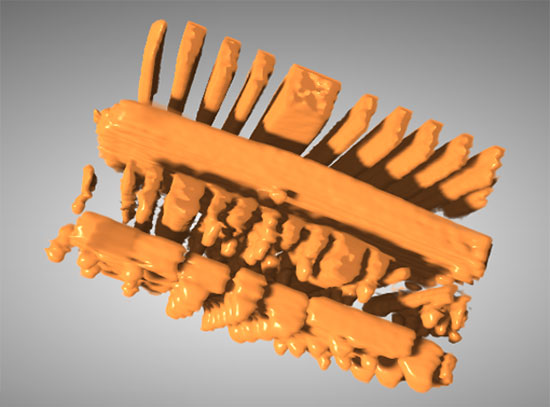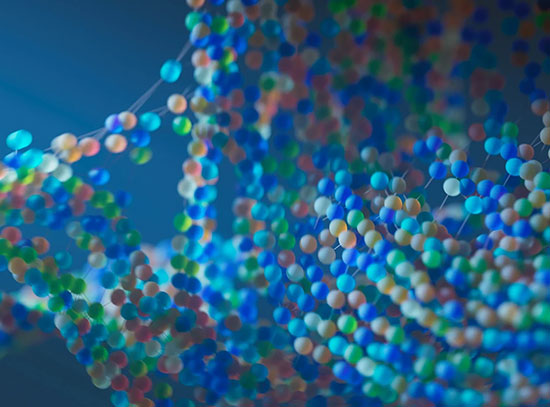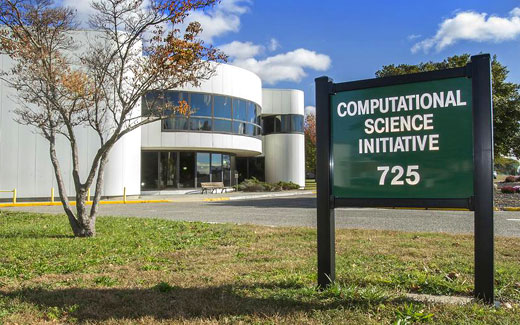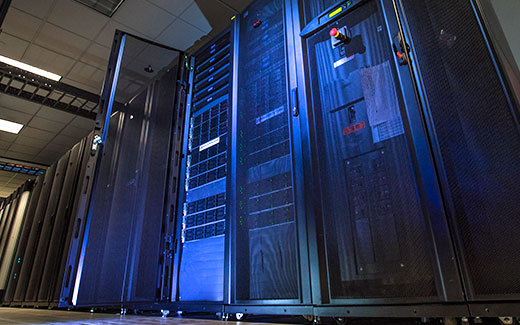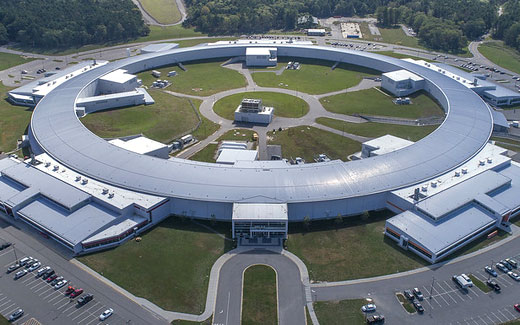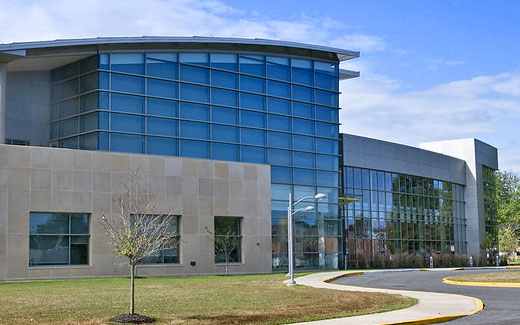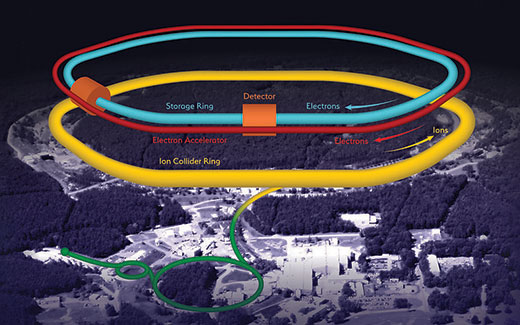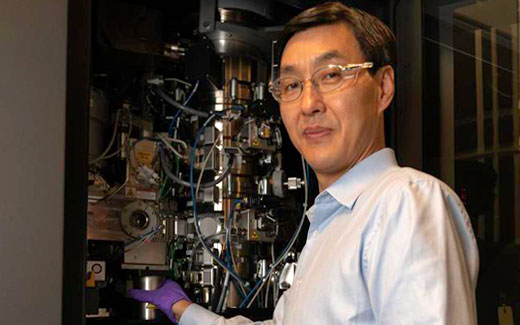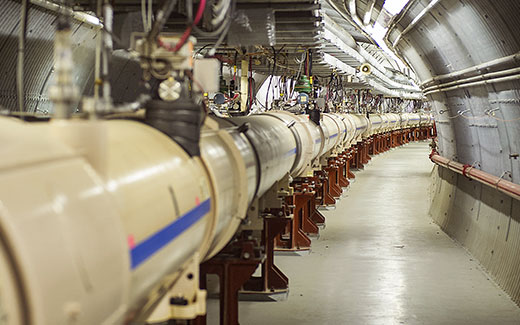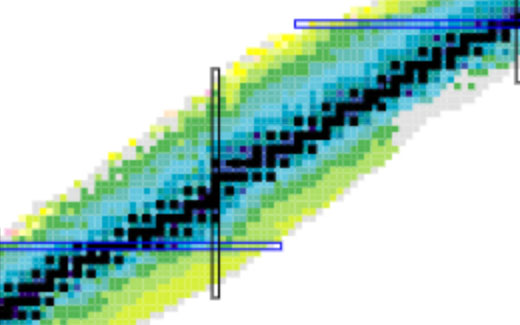Artificial Intelligence
Artificial Intelligence (AI) is transforming our daily lives, from self-driving cars to chatbots to digital personal assistants. Long used in science to analyze data, AI is transforming the way science is carried out; speeding discoveries in areas as varied as fundamental physics, next-generation microelectronics, advanced materials, and drug discovery. Brookhaven National Laboratory is at the forefront of this charge, both in the development and use of AI for scientific research and applications.
Examples of current AI research projects
Embodied AI at Brookhaven Lab
December 15, 2025
Researchers at Brookhaven Lab are making progress in many areas of artificial intelligence (AI), including “embodied AI” — systems that incorporate AI into a physical object, such as a robot, that can interact with and learn from the physical world. Carlos Soto, from the Lab's Computing and Data Sciences Directorate, leads Brookhaven's work in embodied AI. Hear him explain this fascinating research and where it's leading.
Digital Twins
These digital representations of real-world systems can be probed by humans to understand the response of that system to external stimuli. Brookhaven is researching efficient supercomputer methods to render these digital simulations quickly, quantify inaccuracies, and orchestrate components to make digital twins responsive to practical needs.
AI in Hardware
The Lab is designing custom chips that encode specialized AI algorithms for “edge processing” into hardware. Work includes integrating microelectronics such as memristors (components that act like the brain’s neurons) and silicon photonics with CMOS-based electronics for next-generation energy-efficient AI accelerators.
Sparse, Multimodal Data Models
Scientific data is quite different from the text and images that AI models have been trained on to date. It is frequently multi-dimensional, multimodal, temporal, and “sparse” — i.e., most elements may be empty. Brookhaven Lab is exploring how researchers might apply large language model techniques to scientific data for the next generation of AI models. Such models would be transformative for the scientific enterprise and would have applications outside of scientific research — for example in medicine, manufacturing, and agriculture.
Safe, Secure, Trustworthy AI
For scientific and national security uses, it is essential that AI is safe, secure, and trustworthy. Brookhaven has developed privacy-preserving AI (PPAI) technologies and AI inferences that are fully encrypted. Brookhaven has demonstrated these and other methods in areas including Arms Controls and Verification and Nuclear Safeguards. Such PPAI technologies can also benefit non-security applications where privacy is important, including in healthcare and the financial industry.
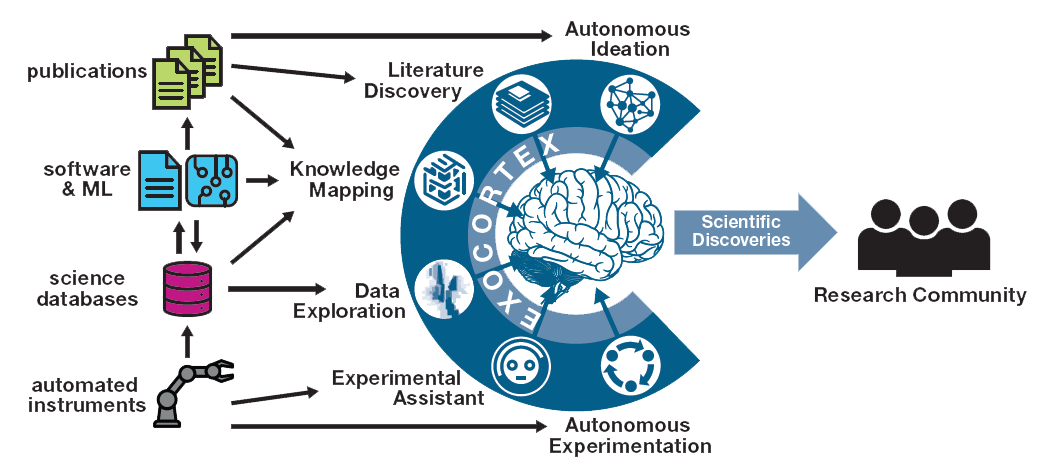
Exocortex Concept
The Lab is building a “science exocortex,” in which an ecosystem of multiple AI agents collaborate to accomplish complex science tasks. Individual AI agents focus on specialized areas of the scientific process, including literature search, hypothesis generation, experimental design, operating complex science instruments, data analysis and interpretation, and — ultimately — scientific discovery. By working as a collective, overseen by a human scientist, this group of agents will provide researchers with an intuitive extension to their existing capabilities.
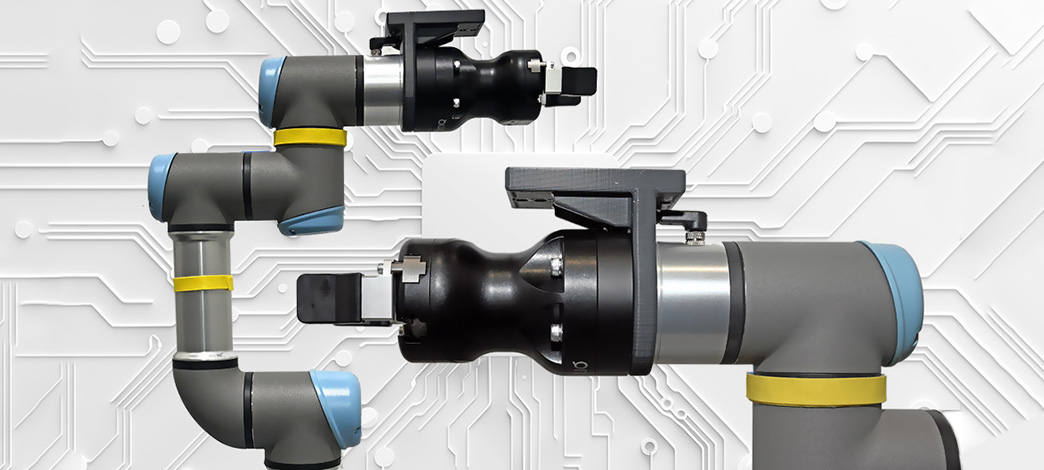
Autonomous Experiments
Brookhaven is world-leading in the development and use of AI to autonomously run scientific experiments — helping researchers by conducting experiments, analyzing the results in real time and deciding which experiments to do next. Such agents are in routine use at the Lab’s National Synchrotron Light Source II (NSLS-II), dramatically increasing the efficiency of researchers in using that resource.
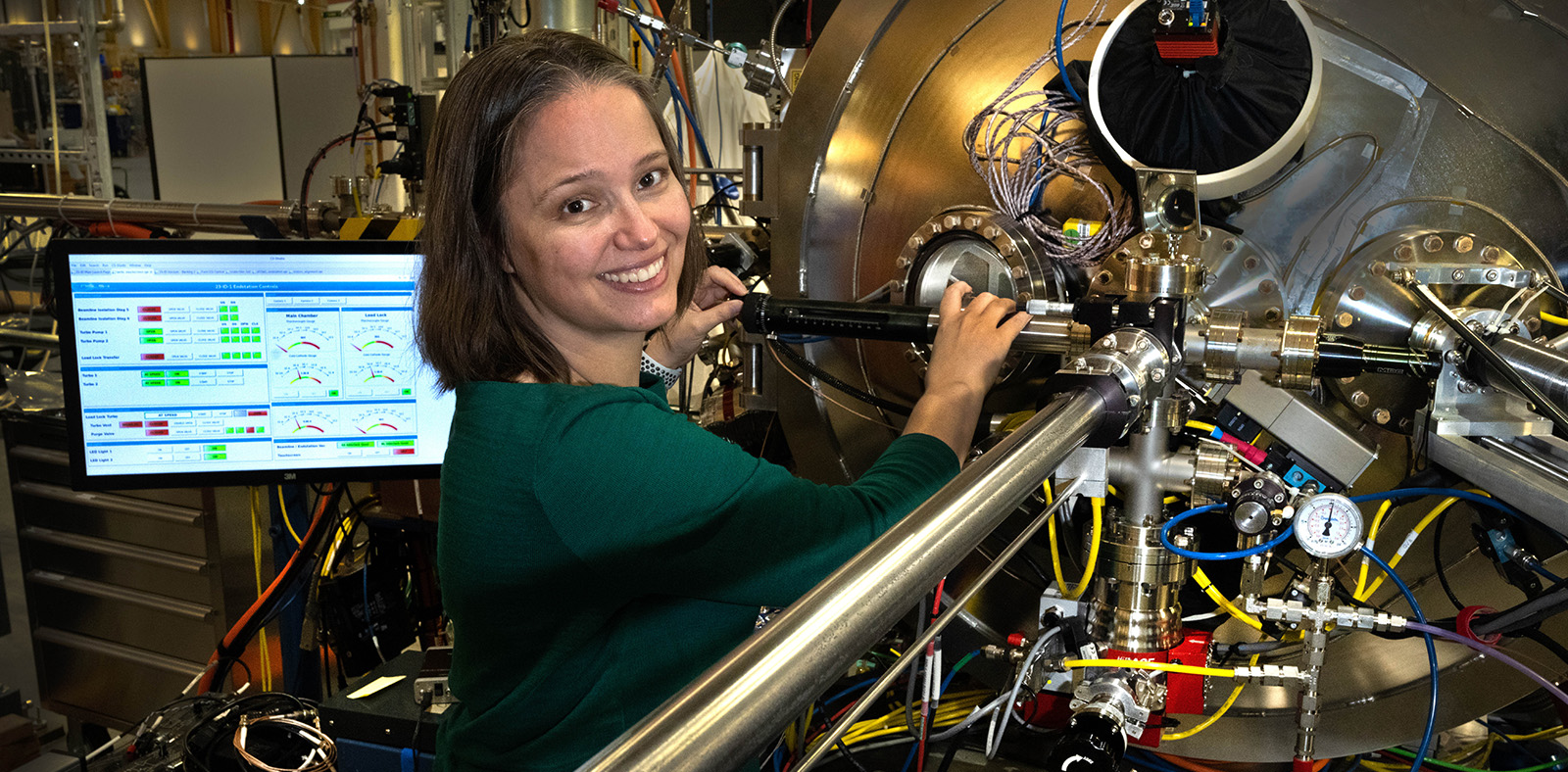
At Brookhaven's National Synchrotron Light Source II, researcher Andi Barbour uses AI to improve the quality of her data. Barbour’s team uses x-rays to study how materials change over time, but detector noise and beam fluctuations make traditional analysis slow and unreliable. Their AI agent automatically cleans data and extracts key patterns that reveal structural changes. This automation greatly reduces computation time, increases accuracy, and provides clearer, high-resolution insights that can be directly compared with models.
At Brookhaven's National Synchrotron Light Source II, researcher Andi Barbour uses AI to improve the quality of her data. Barbour’s team uses x-rays to study how materials change over time, but detector noise and beam fluctuations make traditional analysis slow and unreliable. Their AI agent automatically cleans data and extracts key patterns that reveal structural changes. This automation greatly reduces computation time, increases accuracy, and provides clearer, high-resolution insights that can be directly compared with models
Examples of current AI applications
Accelerator Operations
Generative AI trained on massive accelerator datasets can enhance operational efficiency and reliability, surpassing humans in fault identification and optimizing accelerators in real-time — including enhancing detection of rare particle interactions.
Mid-term Weather Prediction
Advanced AI models trained on massive geospatial datasets (weather, hyperspectral satellite data) significantly improve and accelerate forecasting. Applications range from natural-disaster preparedness (e.g., wildfires) to national security threat detection.

Digital Twin of a Plant Cell
Plant cells are complex, multi-scale systems relevant to food crops, bioenergy, and national security. Brookhaven’s multimodal/multiscale plant-cell imaging capabilities let researchers use AI to model and predict cellular dynamics and stress responses. Digital plant-cell twins could reveal key factors for resiliency and targeted outcomes.
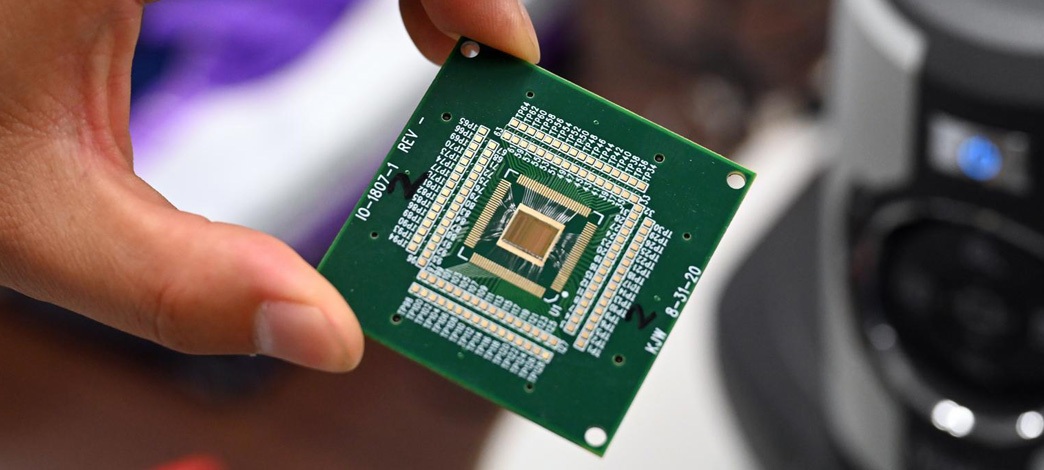
Next-Generation Microelectronics for AI
The explosive growth of AI requires next-generation computing architectures. Microelectronics progress depends on codesign across materials, devices, circuits, software, and systems. AI can accelerate discovery by analyzing large datasets and optimizing materials and system designs.
Grid Resiliency
The increasingly data-rich electric grid can use AI to predict faults, tolerate failures, shift loads faster than humans, and resist malicious tampering. Brookhaven is addressing each part of this problem.
Genesis Mission
A national mission to accelerate science through artificial intelligence
Brookhaven National Laboratory is excited to advance the goals of the “Genesis Mission,” a flagship initiative announced by the Department of Energy to secure U.S. leadership in artificial intelligence for science, energy, and national security. This effort will harness the power of AI and the capabilities and expertise at national laboratories — including Brookhaven — to establish the U.S. as the global leader in AI-enabled science and security. Brookhaven researchers and industry partners expect to take on key roles in Genesis Mission projects related to manufacturing advanced microelectronics, operating and securing the electric grid, and exploring connections between the smallest building blocks of matter and the largest structures in the universe, among other efforts.






